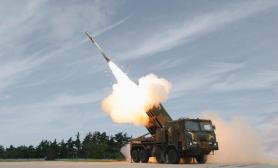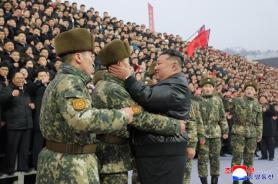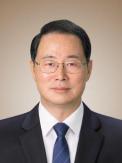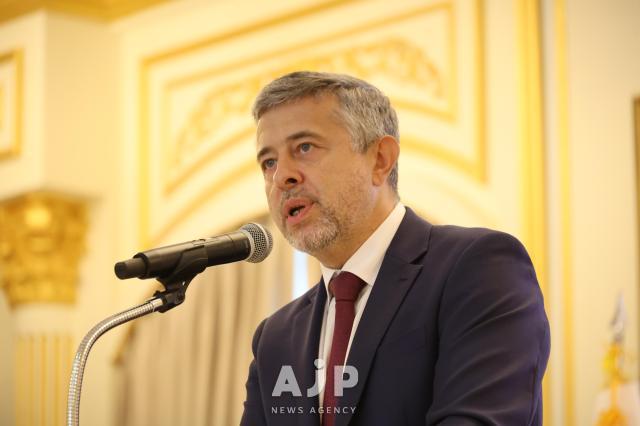
SEOUL, September 13 (AJP) - Russia sees room for reviving its strained relationship with South Korea, Ambassador Georgy Zinoviev said during a reception in Seoul marking the 80th anniversary of the end of World War II.
"Today, despite the many difficulties, Russia and South Korea still have the possibility of restoring practical and mutually beneficial cooperation," Zinoviev told guests at the embassy event on September 12. He added that dialogue and collaboration between the two nations "align with the fundamental interests of both peoples."
The event was part of a series of commemorations highlighting the Soviet role in defeating militarist Japan and the liberation of Korea in 1945. Zinoviev recalled that more than 35,000 Soviet soldiers were killed or wounded during the Manchurian campaign against Japan, including over 1,900 who fell on the Korean Peninsula. He described the Soviet Union's rapid defeat of Japan's Kwantung Army as decisive in forcing Tokyo's surrender and ensuring Korea's independence after 35 years of colonial rule.
"Our two nations and peoples are deeply connected by the shared struggle for Korea's liberation and independence, and many of our compatriots sacrificed their lives in that process," Zinoviev said. He pointed to cultural and scholarly exchanges as a way of preserving that historical connection, noting that the embassy is supporting a research project with South Korean universities on the Soviet role in World War II.
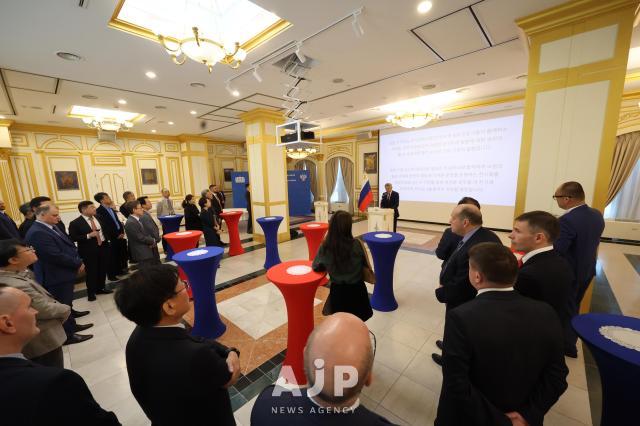
Relations between Russia and South Korea have shifted repeatedly over the past century. In the late 19th century, the Russian Empire was one of the few powers that offered diplomatic recognition to the Joseon court, signing the 1884 Treaty of Friendship and Commerce. Russian diplomats and soldiers also provided shelter to Korean exiles during the Japanese colonial era, and Moscow's early support for independence activists gave Russia a lasting place in Korean historical memory.
Formal diplomatic ties were not established until 1990, but the post-Cold War decades brought rapid growth in exchanges. Russia supplied South Korea with technical know-how in missiles and rockets, giving Seoul's struggling space program a crucial boost. By the 2000s, South Korean consumer goods were highly popular in Russia, and trade volumes exceeded 7 billion USD before the pandemic. Energy imports, car exports, and cultural programs further deepened the relationship.
The trajectory changed sharply after the conflict in Ukraine began in 2022. South Korea joined Western-led sanctions and added hundreds of product categories to its export restrictions on Russia. While Seoul publicly maintained a stance of not sending weapons to countries at war, leaked U.S. intelligence documents in 2023 revealed that South Korea was replenishing American and Polish ammunition stocks. Moscow regarded these moves as a breach of trust and repeatedly warned that providing arms, even indirectly, crossed a red line.
The cooling of ties also spilled into the cultural arena. Performances by Russian artists were canceled in Seoul, sometimes following pressure from Ukraine's diplomatic representatives. Russian officials voiced frustration that culture was being drawn into politics. Trade volumes fell, and South Korean firms such as Hyundai faced difficulties maintaining operations in Russia.
The election of President Lee Jae Myung in June has opened a new chapter. Lee has emphasized pragmatism in foreign policy and shown less appetite for confrontation than his predecessor, Yoon Suk-yeol. Russia's envoy appeared to acknowledge that shift. Without outlining specific measures, Zinoviev stressed the importance of restoring dialogue and protecting areas of cooperation that remain less affected by politics, such as culture, research, and youth exchanges.
"There is a genuine interest in Russian culture and a friendly attitude toward Russia within South Korean society," Zinoviev said at the reception. "This is why I believe continued dialogue and cooperation between our two countries serves the fundamental interests of both peoples."
Copyright ⓒ Aju Press All rights reserved.


